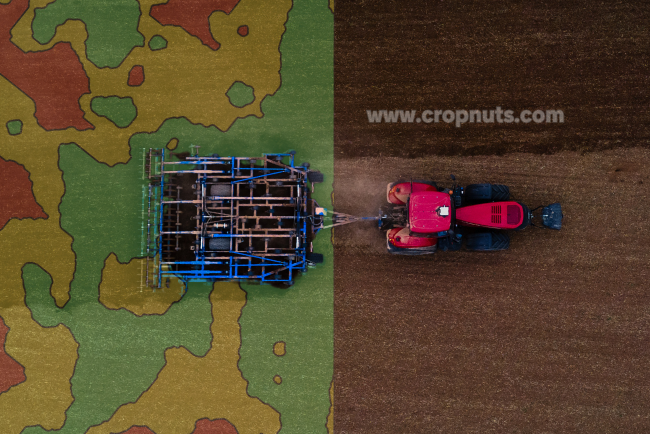
Precision farming, also known as precision agriculture, is an agricultural management approach that leverages data-driven technologies like GPS-guided equipment, satellite imagery, and data analytics to optimise crop production through precise input applications. Instead of a “one-size-fits-all” approach, farmers and agronomists can tailor inputs like lime, fertilisers, and pesticides to match the specific needs of each zone within their fields.
Why It Matters for Farmers and Agronomists:
Precision farming reduces waste by applying inputs like lime, fertilisers, and pesticides only where and when they are needed. For instance, zones with higher fertility require less fertiliser, while nutrient-deficient areas receive targeted treatments. This smart approach cuts input costs and maximises yields. Studies show that precision farming can reduce input costs by up to 30% while improving yields by 10-20%.
Precision farming allows farmers and agronomists to analyse soil variability within a field. Through comprehensive soil testing, we create soil maps that highlight key factors such as soil types, pH, nutrient levels, and organic matter content. These maps provide a clear understanding of field variations and identify distinct zones that require targeted input applications for maximum efficiency.
Using Variable Rate Application (VRA) technology and soil mapping software, precision farming ensures that inputs are applied exactly where they will be most effective. Whether it’s adjusting pH levels with lime or increasing organic matter content, farmers can customise input applications to match specific soil variations within their fields. This approach not only promotes healthier soils but also reduces input costs by optimising resource use.
Precision farming tools such as drones and satellite imagery enable real-time crop monitoring, allowing farmers to detect pest and disease issues early. This proactive approach ensures treatments are applied only where necessary, reducing chemical use by up to 40%. Not only does this save costs, but it also protects the environment by minimising the use of harmful chemicals.
In conclusion, data is at the heart of precision farming, empowering farmers to make informed, real-time decisions. By integrating soil and crop data, farmers can adjust input rates accordingly and address soil fertility and pest/disease issues before they impact yields.
At Crop Nutrition Laboratory Services Ltd. (Cropnuts), we provide farmers with the tools and expertise needed to make smart, data-driven decisions. From comprehensive soil testing to customised VRA maps, we help you optimise inputs and improve yields. Contact our experts at support@cropnuts.com for personalised assistance.
Grow more with less
#SoilHealth #SoilScience #PrecisionAg #PrecisionFarming
Order our services and get to know how to improve your soil for better yeilds.